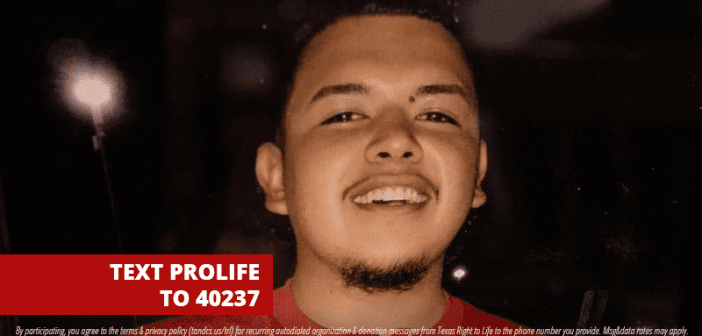Many patients receiving life-sustaining treatment unknowingly face a serious risk— the risk that their or their loved ones’ decisions to receive life-sustaining treatment can be unilaterally overridden, either legally or illegally.
That was the reality for Berman de Paz-Martinez. After a serious brain injury, Berman was rushed to John Peter Smith Hospital (JPS) in critical condition, fighting for his life. Berman was receiving life-sustaining treatments at the Fort Worth hospital, including breathing with the assistance of a ventilator. Berman’s parents were promised seven more days in the hospital, but to their shock and horror, attending physician Dr. Therese Duane entered the hospital room one morning and, without warning, removed Berman’s ventilator before his father’s very eyes. Berman died, amidst his father’s protests and despite unmistakable prior instructions from both parents.
Berman’s family’s fight did not end in his hospital death bed in 2018. His parents have sued the doctor, the doctor’s employment group, and JPS hospital for the unauthorized actions that were taken which ultimately claimed Berman’s life.
The emphatic truth is this: No physician possesses the moral authority and should not possess the legal power to unilaterally end the life of a patient.
Unfortunately, a disturbing, growing cultural mindset is taking root within the medical community. During a deposition, Dr. Duane concurred that Berman’s parents were the appropriate surrogate decision makers for their son, yet admitted that Berman passed away because Dr. Duane and the medical team made the decision to remove him from his ventilator. She described the act simply as a medical decision to be made by the care team. An anonymous surgical resident alleged that Duane withdrew care from three other patients “without appropriate discussions with family or consent.”
It is not the appropriate role of any physician to make this type of unilateral life-or-death decision. It is long accepted that medical decisions, especially ones of such consequence, are to be made collaboratively between medical professionals and the patient or their appropriate surrogate. The physician has a critical role in the decision-making process, which is primarily offering medical advice. Medical professionals are extensively trained for this and possess invaluable experience that patients and families benefit greatly from. However, the responsibility to make a decision rests solely with the patient or their surrogate and should not be misplaced. Many may think Dr. Duane is just one “bad apple,” but experience tells a different story.
We have state policies like the Texas 10-Day Rule where hospital ethics committees can sanction a doctor’s decision to remove a patient’s dialysis or ventilator over their objections or those of a surrogate. Almost all states have a law allowing physicians to unilaterally and immediately remove life support from patients with serious brain injuries once they’re deemed “brain dead,” with a tremendous lack of consistent policies across hospitals.
Medical school students who are a part of Texas Right to Life’s Dr. Edward Hannigan Pro-Life Health Professional Student Fellowship have reported that their colleges do not train students on how to navigate end-of-life discussions involving life-or-death decisions for their patients. The Gonzalez case is evidence of this dilemma.
In June, Texas Right to Life filed an amicus brief in this case in support of Berman’s family. We argued:
The actions of JPS, Acclaim, and Dr. Duane are incomprehensible and a violation of [Berman’s] 14th Amendment rights in the most egregious way. There is no basis to usurp the rights of [Berman’s] surrogate decision makers, that of his parents. Nothing in the common law gives authority to the Appellees to unilaterally terminate life support from a patient…Dr. Duane, JPS, and Acclaim attempt to cloak their actions under authority that simply does not exist.
In the simplest terms, removal of life-sustaining treatment without consent is an unconstitutional deprivation of life.
Dr. Duane prevailed in the Texas Northern District Court, and Berman’s family has since appealed to the U.S. Court of Appeals for the Fifth Circuit. The Fifth Circuit will schedule oral arguments after all parties have submitted their briefing.
As long as hospitals are permitting physicians like Dr. Duane to pull the plug on vulnerable patients, the work of the Pro-Life movement is far from finished. The Right to Life extends to natural death, which means that every innocent human life demands our unreserved protection, and our work will not stop until we see that accomplished.
Texas Right to Life’s Patient Advocacy Program, operated by our legal department, exists to help patients like Berman and his parents whose rights have been trampled by a hospital. You can aid these efforts by financially contributing to our Patient Advocacy Fund.

